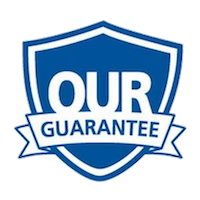Means Test
The Means Test Analysis is intended to prevent filers with higher incomes from filing a Chapter 7 bankruptcy. It is also used to evaluate the reasonable and necessary expenses of a Chapter 13 filers to determine the amount of disposable income that must be paid to general unsecured creditors. The test is not used for those with primarily business debts or for under median income debtors.
There are a Number of Expenses that can Help You Pass the Bankruptcy Means TestMortgage Debt. If your mortgage payment is greater than the standard IRS allowance for housing, you generally can use the higher amount.
Vehicle Payments. You generally can use your car payments, although the remaining balance on the loan will be recalculated over the life of the plan. This may cause the allowed expense to be less than your car payment if you have a low balance remaining and it would be paid off during the plan.
Insurance Payments. The actual cost of your medical, disability, or term life insurance are allowed expenses.
Out-of-Pocket Health Care Expenses. It is a good idea to keep a record of these expenses as they may also be deducted on the means test.
Tax Debt. Actual tax obligations are deducted under the means test and can help you qualify for a Chapter 7 bankruptcy.
Employment or Job Related Expenses. Union dues, uniforms, and other work related expenses can be deducted although you have to be careful not to double dip on food, dry cleaning etc. that may also be counted under your household expenses.
Childcare Expenses. Day care nursery, preschool, babysitting expenses all count on the means test to reduce disposable income.
Other Allowed Expenses. There are categories of expenses that sometimes surprise people when they count as legitimate expenses on the means test. These can include reasonable charitable expenses that are regularly made, regular retirement account contributions depending upon which Chapter you file, continuing contributions made for the care of an elderly or chronically ill household member, payments that are court ordered etc.
Dis-Allowed Expenses. One expense that is not allowed to be deducted is student loans (federal or private). Credit card or other debt that will be discharged in the bankruptcy is also not counted. Expenses paid by a debtor for a child enrolled in college are not a deductible expense.
If there is a significant amount of disposable income left over after deducting all reasonable and necessary expenses, you will be required to file a Chapter 13. The amount of your plan payment will be determined by your disposable income as calculated by the Means Test and your current monthly budget. If you do not have much disposable income left over after deduction of expenses, then you will most likely qualify for a Chapter 7. Regardless of which chapter you file, your debts owed to general unsecured creditors will be discharged. However, if you qualify for a Chapter 7, your discharge will come much faster in only 90-100 days as opposed to the three to five years of a Chapter 13.
The Means Test can be very tricky and is subject to case law and local nuances that debtors may not know. It is important to speak with an attorney who can properly evaluate whether you qualify for a Chapter 7 or to determine what your plan payment would be under a Chapter 13.
 Tampa Chapter 13 Bankruptcy Lawyers Arkovich Law Home
Tampa Chapter 13 Bankruptcy Lawyers Arkovich Law Home





